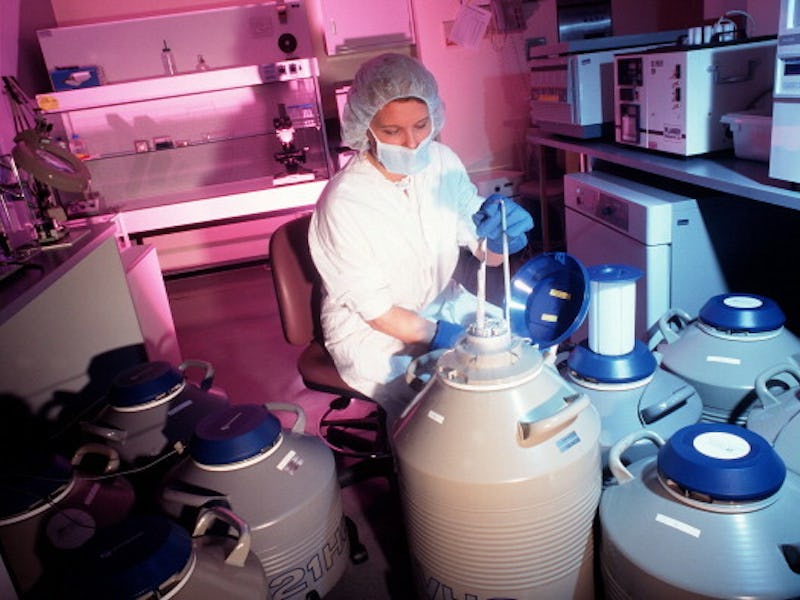The UK Has Allowed Gene-Editing to Learn About Infertility
The techniques will be used to better understand and treat infertility.

The United Kingdom is now the first nation where gene editing of human embryos has the support of a national regulatory body, in a decision made Monday by the Human Fertilization and Embryology Authority. Kathy Niakan, a stem cell scientist at the Francis Crick Institute, has been approved to use gene editing techniques in order to better understand and develop treatments for infertility.
Niakan plans to study the first seven days of a fertilized egg’s development — the time when it grows from a single cell to around 250 cells. Regulations only allow her to study the embryos for up to 14 days, which will be supplied from donors with a surplus of embryos after completing in vitro fertilization. The embryos are only allowed to be used for research purposes, meaning that they cannot be implanted into women. So, no “designer babies.”
The genome editing procedure CRISPR-Cas9 will be used to switch certain genes on and off in the early stages of embryo development, which will allow Niakan and her team to observe how the modifications will affect the development of the cells as they begin to form the placenta.
Cloned human embryos, in a separate procedure in South Korea.
The initial goal of this research is to understand why some women lose their babies in the first trimester, a period of about three months.
“Dr. Niakan’s proposed research is important for understanding how a healthy human embryo develops and will enhance our understanding of IVF success rates, by looking at the very earliest stage of human development, one to seven days,” said Paul Nurse, director of the Francis Crick Institute, in a statement.
Professor Robin Lovell-Badge, also of the Francis Crick institute, told The Guardian that he hopes that this study will also lead to “valuable information about the accuracy and efficiency” of the CRISPR-Cas9 — something that the study’s detractors are fearful of. While scientists may celebrate this recent decision and the affect it might have on influencing future studies, some people are still concerned with the ethics of genome editing.
“This is the first step in a well mapped-out process leading to GM babies, and a future of consumer eugenics,” Dr. David King of Human Genetics Alert told The Guardian. He is afraid that any allowance of genome editing will lead to a future where the procedure is the norm.
Other scientists, however, are congratulating Niakan and her team for proposing research that appears, for now, to strike a balance between ethical considerations and innovative practices. Additionally, the HEFA is being extra careful with the study’s next steps — a local research ethics board must now approve of the research proposal before any actual experiments can begin.
“The ruling by the HEFA is a triumph for common sense,” Professor Darren Griffin told The Guardian. “While it is certain that the prospect of gene editing in human embryos raised a series of ethical issues and challenges, the problem has been dealt with in a balanced manner. It is clear that the potential benefits of the work proposed far outweigh the foreseen risks.”